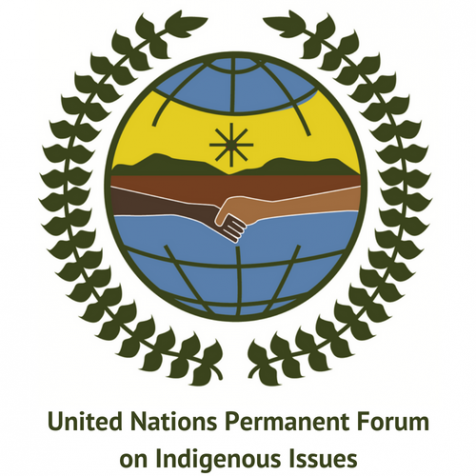The United Nations Permanent Forum on Indigenous Issues (UNPFII) is a high- level advisory body to the Economic and Social Council. The Forum was established on 28 July 2000 by resolution 2000/22, with the mandate to deal with Indigenous issues related to economic and social development, culture, the environment, education, health and human rights.
More specifically, the Permanent Forum:
- provides expert advice and recommendations on Indigenous issues to the Council, as well as to programmes, funds and agencies of the United Nations, through ECOSOC;
- raises awareness and promotes the integration and coordination of activities related to Indigenous issues within the UN system;
- prepares and disseminates information on Indigenous issues;
- promotes respect for and full application of the provisions of the UN Declaration on the Rights of Indigenous Peoples and follow up the effectiveness of this Declaration (Art. 42 UNDRIP).
The first meeting of the Permanent Forum was held in May 2002, with yearly sessions thereafter. The Forum usually meets for 10 days each year, at the UN Headquarters in New York. According to the ECOSOC resolution E/2000/22, the Forum may also meet at the UN Office in Geneva or at such other place that it decides.
In addition to the six mandated areas (economic and social development, culture, the environment, education, health and human rights), each session is thematically focused on a specific issue.
The Permanent Forum is one of three UN bodies that is mandated to deal specifically with Indigenous Peoples’ issues. The others are the Expert Mechanism on the Rights of Indigenous Peoples and the Special Rapporteur on the rights of Indigenous Peoples.
The Permanent Forum’s engagement and role in promoting Indigenous Peoples’ rights are made possible through the Trust Fund on Indigenous Issues, which overall facilitates follow-up to the Forum’s recommendations, awareness raising and outreach on Indigenous issues as well as representation and participation of Permanent Forum members at international meetings of significance for its mandate. In addition, the Trust Fund provides support for the implementation of the United Nations Declaration on the Rights of Indigenous Peoples. DESA is charged with the overall management of the Trust Fund, which is placed under the Indigenous Peoples and Development Branch-Secretariat of the Permanent Forum on Indigenous Issues.
Permanent Forum session themes across the years:
* as of 3 November 2022, the term “Indigenous Peoples” is capitalized in the United Nations Editorial Manual. That update was made in accordance with an agreement made among the Member States when negotiating General Assembly resolution 77/203.
 Welcome to the United Nations
Welcome to the United Nations